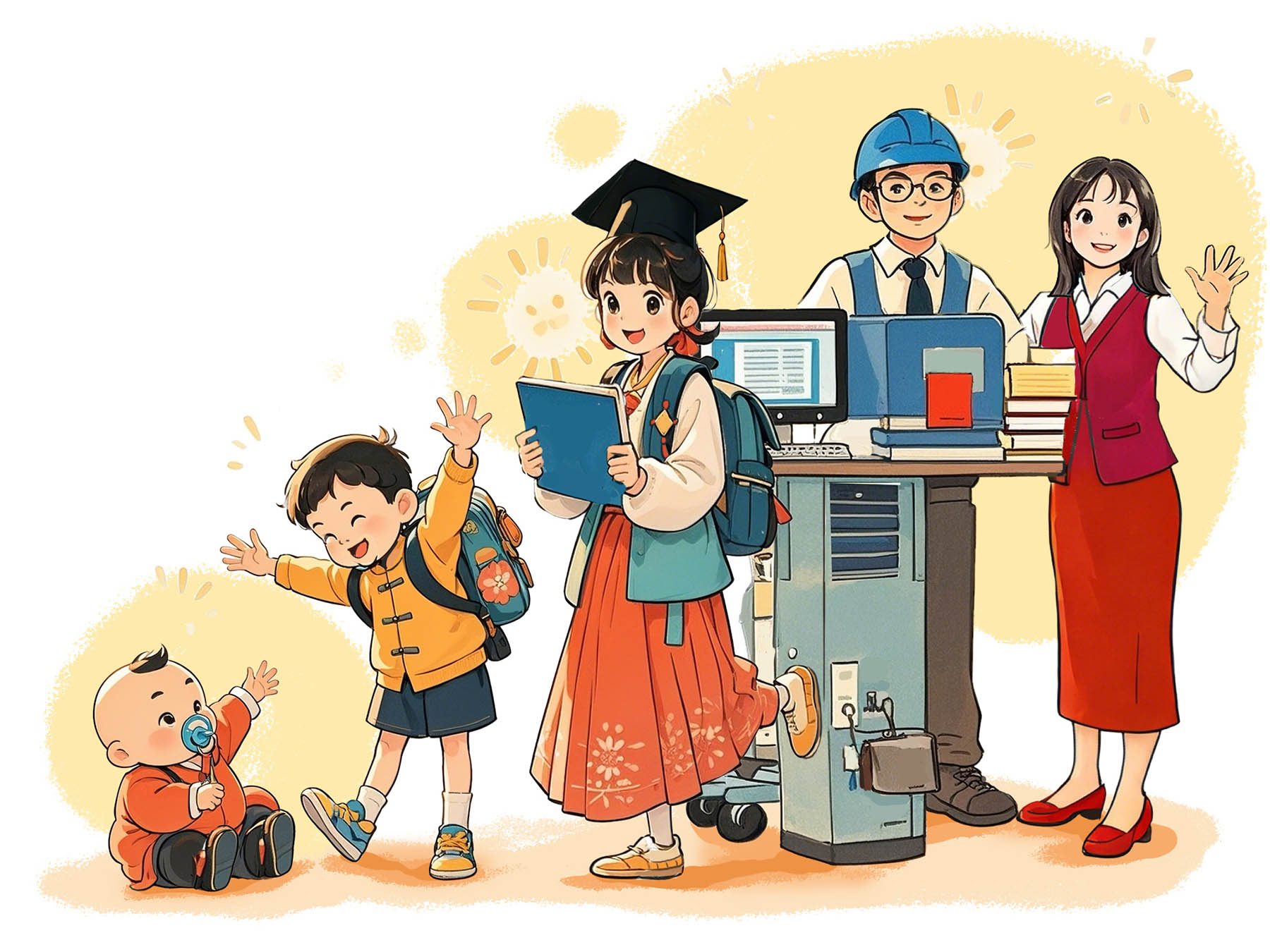Editor's note: Over the past years, China's socioeconomic situation has undergone significant transformation. Faced with challenges and opportunities, the Chinese government has been making concerted efforts to promote social development and high-quality growth. Three experts share their views on the issue with China Daily.

A recent study by Harvard Graduate School of Education and Indiana University found that an overwhelming majority (81 percent) of American teens face tremendous pressure regarding their achievements, appearance and future. American teens are not alone. In China, too, the youth face neijuan, unnecessary excessive peer competition, and tangping, continuing to coast on the "chosen path" despite facing challenges.
I have the good fortune of working with the best and brightest university students throughout the world, including those in China. I know firsthand that strong academic performance and high test grades hold the key to admission to the best universities and to secure the best jobs. I also know that after graduation, youth face extremely tough competition to get suitable jobs, especially during times of unemployment and economic challenges. This problem is again not unique to China and this pressure, if not checked, can become dysfunctional.
READ MORE: Talent key to strong system for education
Given the intense pressure and competition, no wonder youth are increasingly feeling despair and, as a coping or self-protection strategy, might refuse to overwork or even withdraw from the challenging competition to escape the relentless pressure. Youth born between 1997 and 2012, often referred to as "Gen Z", account for 30 percent of the world's population and are the incoming workforce generation. Viewed as the "first global generation", they are generally tech-savvy and have a greater sense of connection as well as personal and professional relationships.
They are socially accountable, and value a sustainable environment. Raised in a digitalized and economically fluctuating society, Gen Z tends to be more communicative, open, diverse and collaborative. These youth value the importance of meaningful work, prioritization of mental health, inclusive company culture, open and honest communication, stability and balance, professional growth, collaboration, autonomy and flexibility.
This change in our workforce is compounded by the supply and demand of good jobs and the need to further create new job opportunities. China is already successfully addressing this challenge by increasing investments in infrastructure, education, and research and development while further encouraging the entrepreneurial spirit.
The entrepreneurial spirit is alive and well in China — fueled by China's promotion of the creation of private or rural enterprises. In Guangzhou, Guangdong province, business incubators provide valuable combinations of research, office and living space as well as incubation solutions for start-ups. Urban innovation and entrepreneurship competitions organized by our universities (to include the Alliance of Guangzhou International Sister-City Universities) further promote, recognize and reward this spirit. These competitions in China, often attended by college students from other countries, multiply entrepreneurial efforts and the progress of the youth across the world.
The success of these efforts is readily visible, with the World Bank reporting in 2022 that almost 46 percent of the people in China are self-employed as compared with about 10 percent in the United States.
As the world's fastest growing major economy since the 1980s, China's meteoric rise to a major economic power is unprecedented. This remarkable journey has been ably supported by its highly competent and skilled workforce. To maintain this momentum, we should continue to adapt to changes and further nurture the Gen Z workforce by creating equal opportunities to help them achieve their dreams and goals.
ALSO READ: Human capital dividend to propel modernization
Where there are challenges there also are opportunities. These opportunities could include better defining careers and paths for promotion, empowering and delegating decision-making powers as much as possible, engaging all levels of staff in decision-making, thanking and showing appreciation for a job well done, and publicly acknowledging and rewarding the hard work and achievements of every individual with incentives. We should not fear mistakes or failure given this is often how we learn to improve and how we stand stronger and smarter.
Our youth should also be encouraged to be optimistic, to continue pursuing their dreams and to believe in themselves. We should strive to make work even more meaningful by using the latest technologies, building a positive company culture, helping achieve work-life balance, increasing opportunities for social and professional advancements, and integrating environmental sustainability and professional development programs.
Youth in China and the rest of the world remain optimistic about the future and I have faith in our next generation. They are brilliant, strong, talented and more than capable. They will become our next world leaders, and we must continue to do all we can to better support their success and achievement of their dreams.
The author is executive director of the Secretariat Office for the Alliance of Guangzhou International Sister-City Universities.
The views don't necessarily reflect those of China Daily.



